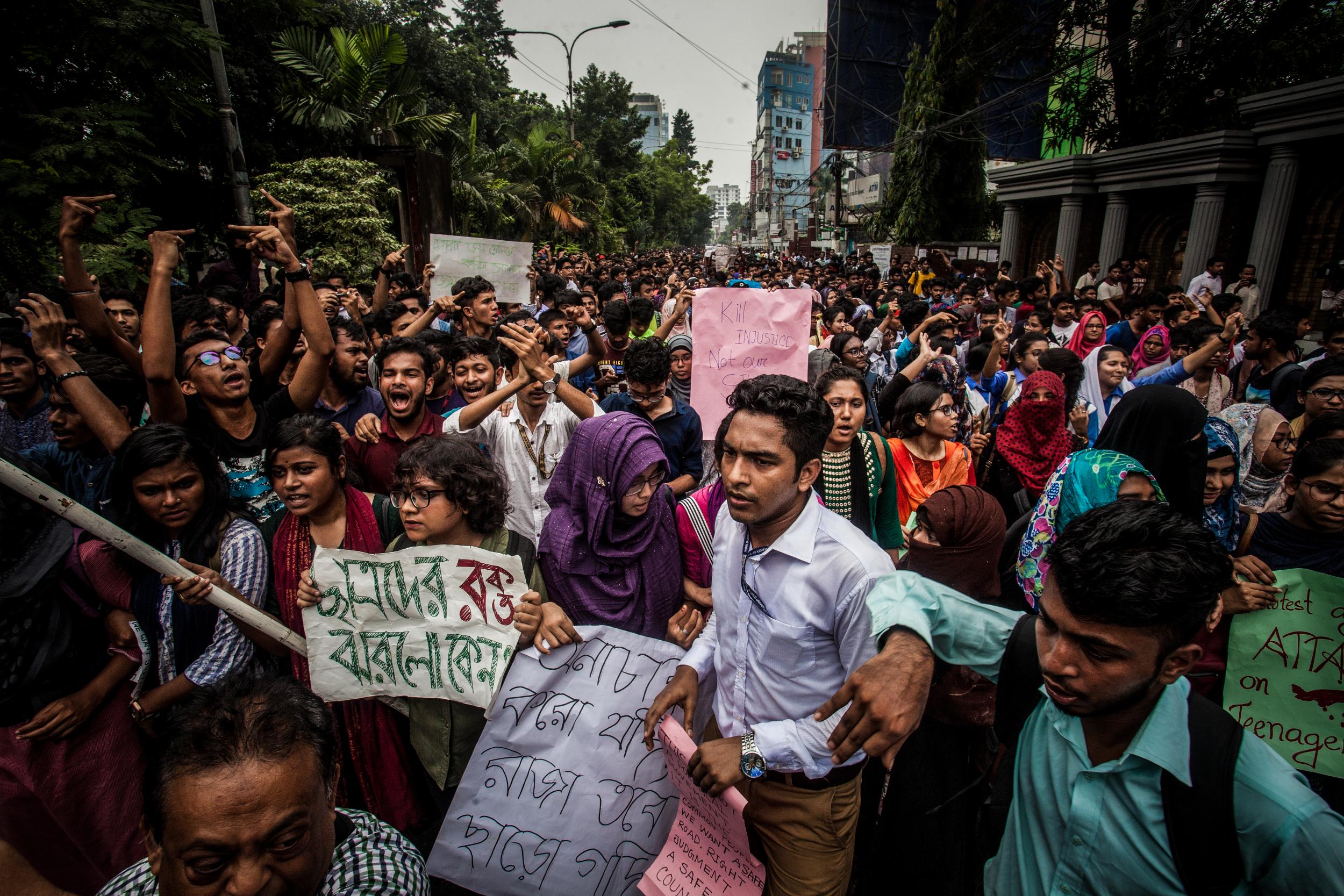Bangladesh protests: Armed men attack US ambassador's car as thousands of students take to streets
Convoy attacked by men on motorcycles in capital city of Dhaka

Your support helps us to tell the story
From reproductive rights to climate change to Big Tech, The Independent is on the ground when the story is developing. Whether it's investigating the financials of Elon Musk's pro-Trump PAC or producing our latest documentary, 'The A Word', which shines a light on the American women fighting for reproductive rights, we know how important it is to parse out the facts from the messaging.
At such a critical moment in US history, we need reporters on the ground. Your donation allows us to keep sending journalists to speak to both sides of the story.
The Independent is trusted by Americans across the entire political spectrum. And unlike many other quality news outlets, we choose not to lock Americans out of our reporting and analysis with paywalls. We believe quality journalism should be available to everyone, paid for by those who can afford it.
Your support makes all the difference.Cars carrying the US Ambassador to Bangladesh have been attacked amid violent protests in the South Asian country.
A convoy for Ambassador Marcia Bernicat was stopped by a group of armed, adult men in the capital city of Dhaka on Saturday night, the US Embassy said in a statement. Ms Bernicat and her security team escaped unharmed, but two of the cars were damaged.
Police said they were still investigating the attack on Monday – the ninth day of protests over road safety in the country.
The attack came shortly after the US Embassy expressed its support for the thousands of student protesters and condemned the government’s aggressive response.
“While we don't condone the actions of a few who have engaged in senseless property destruction, including of buses and other vehicles, nothing can justify the brutal attacks and violence over the weekend against the thousands of young people who have been peacefully exercising their democratic rights in supporting a safer Bangladesh,” the embassy said.
Thousands of young people have taken to the country’s streets in recent days, following the death of two university students who were hit by a speeding bus last Sunday. The protesters have halted traffic in the 18m-person city, stopping drivers to demand licenses and paperwork. While the majority of the protest have been peaceful, some demonstrators have attacked and vandalised the city’s buses.
Police have attempted to shut down the protests using tear gas and rubber bullets, leading to violent clashes between protesters and authorities. A student group linked to the ruling party has been accused of beating dozens of students and journalists.
Prime Minister Sheikh Hasina has accused the opposition party of using the protests to stoke conflict before this year’s primary election – claims the opposition party has denied. She and other government officials have told protesters to stay home, with some warning that police officers could soon lose their patience.
In a sign of hope for the protesters, however, Bangladesh’s cabinet have approved a law increasing the maximum jail time for driving deaths by two years. Running someone over deliberately will now be punishable by the death sentence.
More than 4,000 people died in road accidents in Bangladesh last year, according to the National Committee to Protect Shipping, Roads and Railways (NCPSRR) – one of the highest rates in the world. The NCPSRR noted that road deaths had increased more than 25 per cent from the year before, and cited reckless driving as the primary cause.
Join our commenting forum
Join thought-provoking conversations, follow other Independent readers and see their replies
Comments